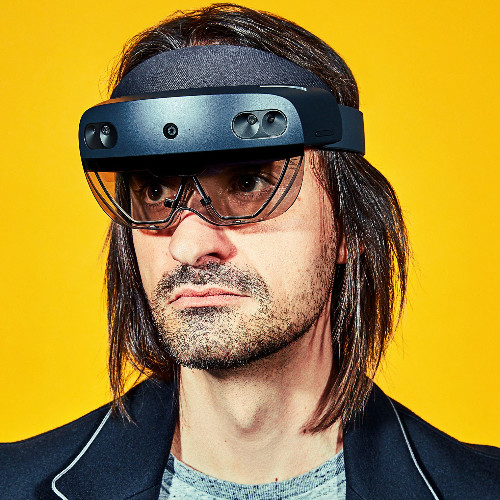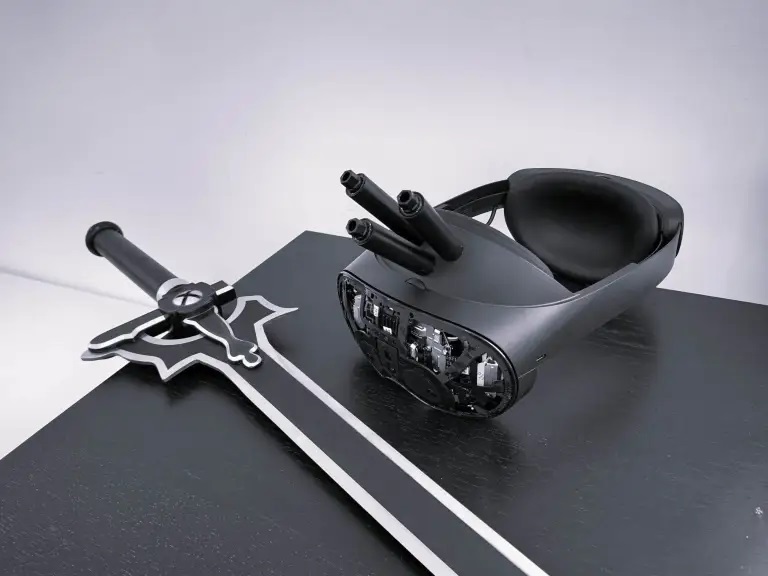|
Getting your Trinity Audio player ready...
|
Defense-tech startup Anduril Industries is to partner with Microsoft and oversee a valuable headset order from the Pentagon.
Both firms announced on Tuesday an “expanded partnership to drive the next phase of the US Army’s Integrated Visual Augmentation System (IVAS) program.”
It should be remembered that it was back in 2020 when it was announced that Microsoft would build for the US Army more than 120,000 custom HoloLens headsets, known as the Integrated Visual Augmentation System (IVAS).

IVAS project
However initial testing of the headsets had seen soldiers complaining of headaches, nausea, and eyestrain.
And in October 2021 the US Army said it was pushing back the date it planned to field the augmented reality glasses.
But the Pentagon said at the time it remained “fully committed” to the $22 billion contract, after defence news publication Jane had reported that it had halted the project and was re-evaluating plans for the technology.
In July 2023 Microsoft had sent the US Army a batch of 20 updated prototype headsets, which were tested by two squads of soldiers in August who checked for improvements in reliability, low-light performance and how well they fit without repeats of the nausea and dizziness that halted the deployment of earlier versions.
In September 2023 it was reported Microsoft had been awarded an order for another batch for a make-or-break combat evaluation in 2025.
The newer headsets had “demonstrated improvements in reliability, low light sensor performance, and form factor,” Army spokesperson David Patterson was quoted as saying at the time.
HoloLens speculation
That news did offer some degree of continuity for Microsoft’s headset, after years of speculation over its future.
Microsoft’s HoloLens augmented reality headset had first been revealed to the world back in 2015.

But new headset models were sporadic over the intervening years, with the last commercial model being the HoloLens 2, which had been announced at the Mobile World Congress (MWC) back in February 2019.
Then in February 2022 questions were raised about the future of the HoloLens project, amid reports that the HoloLens 3 had been cancelled in mid-2021, around the same time Microsoft partnered with Samsung for a mixed reality device.
Microsoft’s HoloLens division had been led by Microsoft technical fellow Alex Kipman, the creator of the HoloLens augmented reality headset.
But in June 2022 Kipman left Microsoft, after he was allegedly accused of inappropriate behaviour.

Media reports stated that Microsoft discontinued HoloLens production in 2024.
Anduril oversight
Now Anduril Industries said that with the expanded partnership with Microsoft (and pending Department of Defense approval), “Anduril will assume oversight of production, future development of hardware and software, and delivery timelines. This agreement also establishes Microsoft Azure as Anduril’s preferred hyperscale cloud for all workloads related to IVAS and Anduril AI technologies.”
“The IVAS program represents the future of mission command, combining technology and human capability to give soldiers the edge they need on the battlefield,” said Palmer Luckey, founder of Anduril Industries.
“The ultimate goal is to create a military ecosystem where technology acts as an extension of human capability,” said Luckey. “By empowering soldiers with the tools they need to make faster, smarter decisions, we’re building a future where technology and human ingenuity combine to ensure mission success.”
“We are incredibly proud of the work our teams have put in to help the US Army transform its concept of a soldier-borne, AR headset into reality with the IVAS program,” added Robin Seiler, Corporate VP, Mixed Reality at Microsoft.
Gruesome development
Palmer Luckey was the founder of Oculus, which was acquired by Facebook (now Meta) back in 2014 for $1.9 billion.
Luckey then went on to found Anduril after his ousting from Facebook, and he has some experience in dealing with the lethal aspects of a wearable device.
In November 2022 Luckey revealed he had developed a virtual reality headset, called NerveGear, that could actually kill the wearer in real life if their avatar dies in a computer game.

Essentially the prototype headset comes equipped with three explosive charge modules positioned above the visor.




